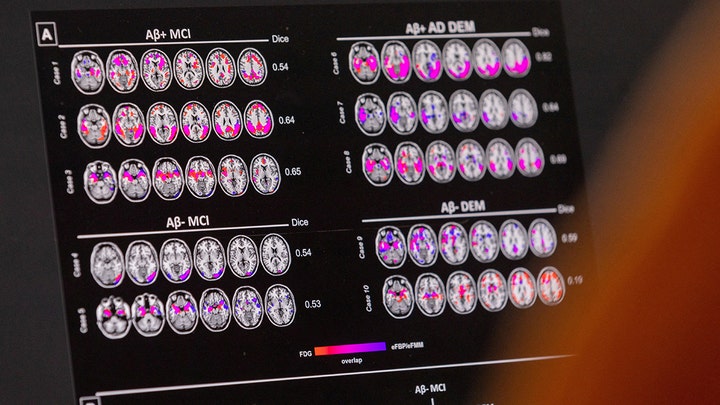Study Finds That Poor Sleep Could Affect The Brain In A New Surprising Way
Poor sleep could affect our brains in more ways than we imagined.

We all know good sleep is a cornerstone of a healthy lifestyle, giving our minds and bodies the fuel they need to perform at their best.
But life can get in the way, and sometimes, sleep isn’t at the top of our to-do list. Whether it’s work deadlines, family responsibilities, or a social life that keeps us up late, there are countless reasons why sleep might slip through the cracks.
However, one thing remains certain: quality sleep has a profound impact on our health, especially when it comes to our brains.
Research has long pointed to a strong link between sleep quality and overall health, including cognitive well-being. But in recent studies, scientists are uncovering new insights into just how deeply sleep affects our brains—revealing impacts we may not have fully understood before.
And the findings are surprising, especially for middle-aged individuals. Although we might assume that sleep-related issues only become serious in older age, it turns out that these effects can show up earlier than we think, often creeping up in subtle ways.
In our fast-paced lives, getting a full eight hours can feel like a luxury. However, skipping out on adequate sleep may have mental and physical repercussions sooner than we expect.
From memory lapses and reduced focus to more serious long-term issues, the consequences of sleep deprivation are no longer something we can afford to ignore.
So, what exactly does this latest study reveal? And what changes are really happening in our brains when we cut corners on sleep?
Dive into the details and discover the surprising connections between sleep and brain health—what this research means and why prioritizing rest could be more essential to our daily lives than we ever realized.
On top of the regular signs of poor sleep, there are also signs within your brain as well.
A new study from the University of California, San Francisco, has said that poor sleep is actually linked to faster brain aging in middle-aged adults. Previous studies have mainly focused on older adults, which we commonly hear about.
However, this study looked at middle-aged adults and found that the correlation was the same. The study looked at participants who took questionnaires five years apart and, after fifteen years, underwent brain scans.
 istock
istockThe author gave us some insight into what they found in the study.
"We calculated brain age using a machine learning approach, using MRI data to estimate the amount of brain shrinkage corresponding to a specific age," author Clemence Cavailles said. "We showed that poor sleep that persisted over five years — and specifically when it related to insomnia symptoms — was found to be highly relevant to brain aging."
They looked mainly at six different characteristics, including short sleep duration, bad sleep quality, difficulty falling asleep, difficulty staying asleep, early morning awakening, and daytime sleepiness.
 istock
istockThe findings of the study were published in the American Academy of Neurology.
"These findings are critical because they demonstrate that the link between sleep disturbances and brain health extends beyond older adulthood, suggesting that poor sleep in early midlife may already contribute to accelerated brain aging," he said.
Advanced brain aging is also associated with cognitive decline and Alzheimer's disease. "Therefore, poor sleep may be an important target for early interventions aimed at preventing neurocognitive decline, even before the lesion’s accumulation begins," he continued.
 istock
istockIt's been proven that many do sleep less than they should and this could eventually cause issues.
"Sleep duration in midlife may be influenced by numerous factors, such as work, stress, multitasking or menopause," the author stated. "Thus, it is also possible that its association with cognition is more complex during this critical period, and potentially more difficult to capture and/or less impactful."
 istock
istockThey looked more in depth to what they meant by "poor sleep."
"The findings highlight particular aspects of poor sleep — specifically early morning awakening and persistent difficulty with initiating sleep, which was associated with greater estimated age-related brain atrophy as measured by MRI," Dr. Jocelyn Y. Cheng, a New Jersey neurologist and spokesperson for the American Academy of Sleep Medicine said.
 REUTERS/Denis Balibouse
REUTERS/Denis BalibouseDr. Cheng stated that there are things people can do to improve this.
"They can start by maintaining a consistent sleep schedule, going to bed and waking up at the same time every day," he said. "Creating an ideal sleep environment — keeping the bedroom dark, quiet and at a cool temperature — also helps."
 istock
istockIt's important to keep an eye on your sleep and sleep habits.
They've said that if you find that you're facing persistent problems with your sleep then you should get it checked out to ensure that there's nothing else going on, such as an underlying disorder.
 istock
istockThis is an interesting study that showed that there is a correlation between how much sleep you're getting and how it's affecting the brain. The older generation is not the only generation affected by this, and it's even more important for everyone now, with our busy lives, to keep up with a persistent sleep schedule and get adequate sleep each night.
Expert Opinion
Refusing to share an inheritance may reflect personal boundaries or past family conflict. It's not always selfish - sometimes, it's about self-respect. Refusing to share an inheritance may reflect personal boundaries or past family conflict. It's not always selfish - sometimes, it's about self-respect.
How we reviewed this article:
We strive to provide accurate and helpful information in every story. To ensure transparency and credibility, we've referenced reputable sources that help support the context or claims made in this article.
-
• Mayo Clinic. (n.d.):https://www.mayoclinic.org/
-
• Psychology Today. (2023):https://www.psychologytoday.com/us
-
• American Psychological Association. (2022):https://www.apa.org/news/
-
• Smith, L. (2023). "When family and money collide." Journal of Family Psychology:https://www.mayoclinic.org/
-
• Center for Financial Wellness. (n.d.):https://financialwellness.org/
